How AI Chatbots Revolutionize Enterprise Business Processes
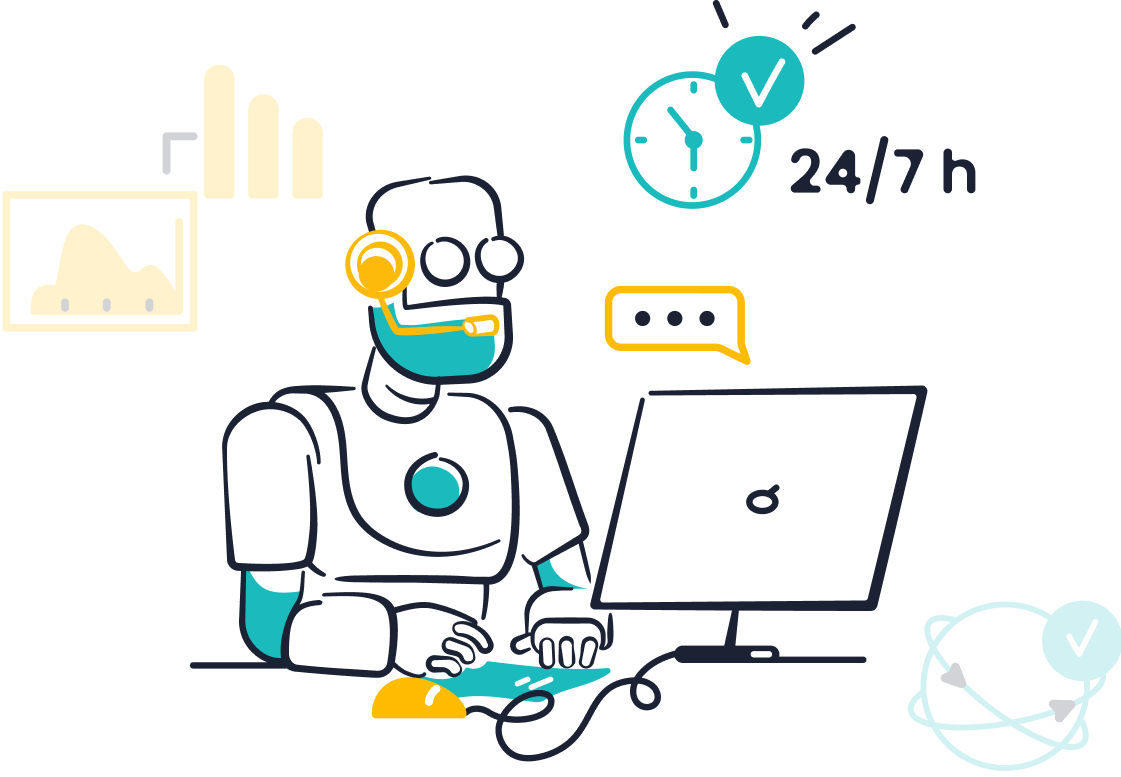
AI chatbots have transformed how businesses operate by automating workflows and driving efficiency. Unlike traditional systems, generative AI chatbots understand context and learn from interactions, enabling them to deliver human-like responses. This innovation has proven essential for enhancing customer interactions. For instance, 92% of companies using AI report improved customer service, while 95% experience reduced costs and time savings.
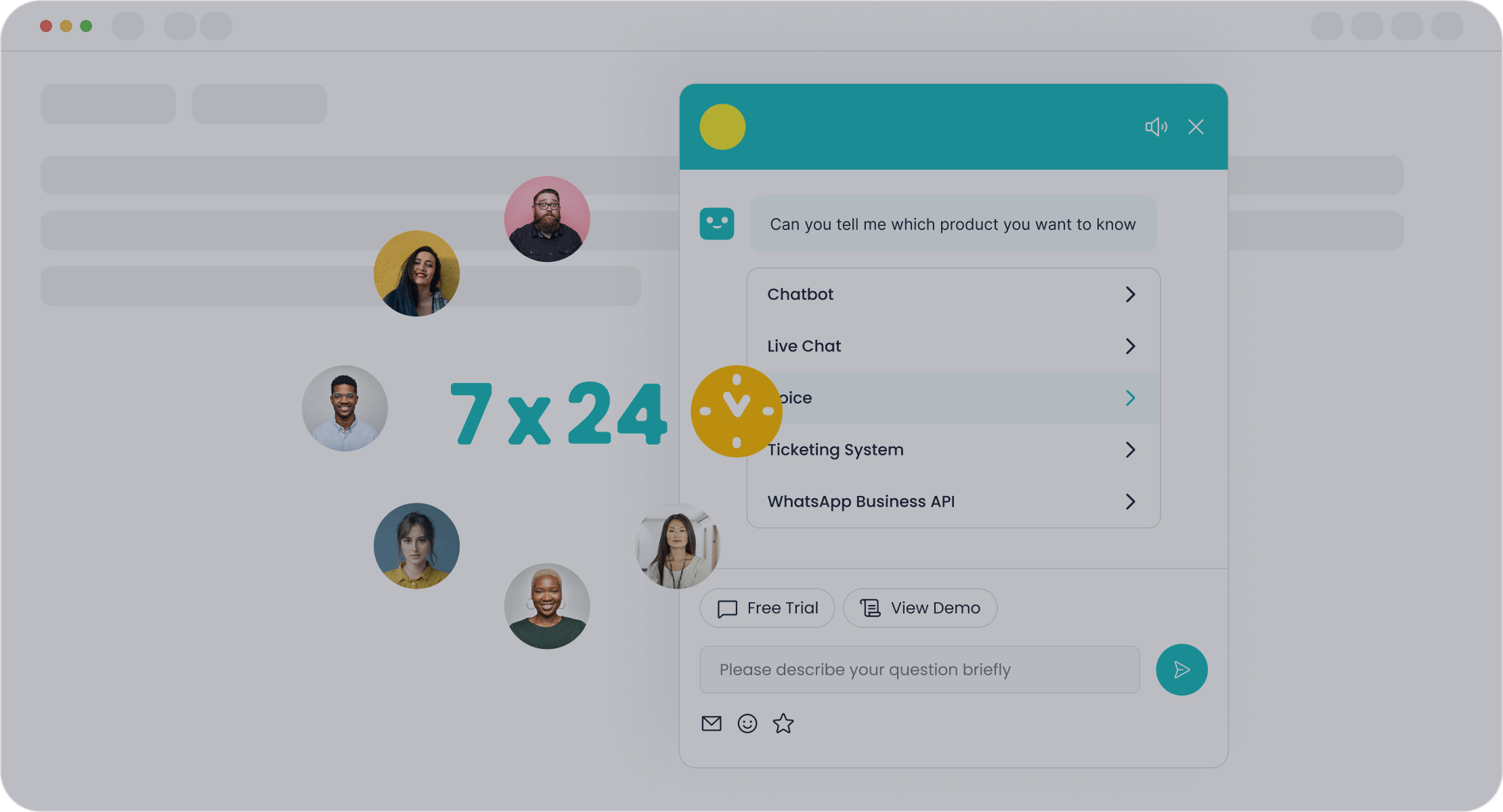
Sobot's enterprise AI chatbot solution exemplifies this transformation. Its multilingual and 24/7 capabilities empower businesses to handle customer queries efficiently. By integrating advanced AI, Sobot helps you scale operations, reduce expenses, and deliver superior customer experiences.
Understanding AI Chatbots and Their Role in Enterprises
What Are AI Chatbots?
AI chatbots are computer programs designed to simulate human conversations. They use advanced technologies like machine learning and natural language processing (NLP) to understand and respond to user queries. Unlike traditional systems, these intelligent chatbot solutions can learn from interactions and improve over time. For example, a chatbot embedded in a retail website can assist customers with product recommendations or order tracking.
AI chatbots operate across various platforms, including messaging apps, websites, and social media. They provide 24/7 support, ensuring your business remains accessible to customers at all times. Companies like OPPO have successfully implemented enterprise chatbots to handle high volumes of inquiries during peak shopping periods, achieving an 83% resolution rate.
Core Functionalities of AI-Powered Chatbots
AI-powered chatbots offer several key functionalities that enhance enterprise operations. These include:
- Intelligent Interactions: They provide context-aware responses, making conversations feel natural and engaging.
- Helpdesk Integration: Chatbots centralize customer support tasks, streamlining workflows.
- Knowledge Base Utilization: They access and share information instantly, reducing response times.
- Customizable Reporting: Chatbots analyze performance data, helping you identify areas for improvement.
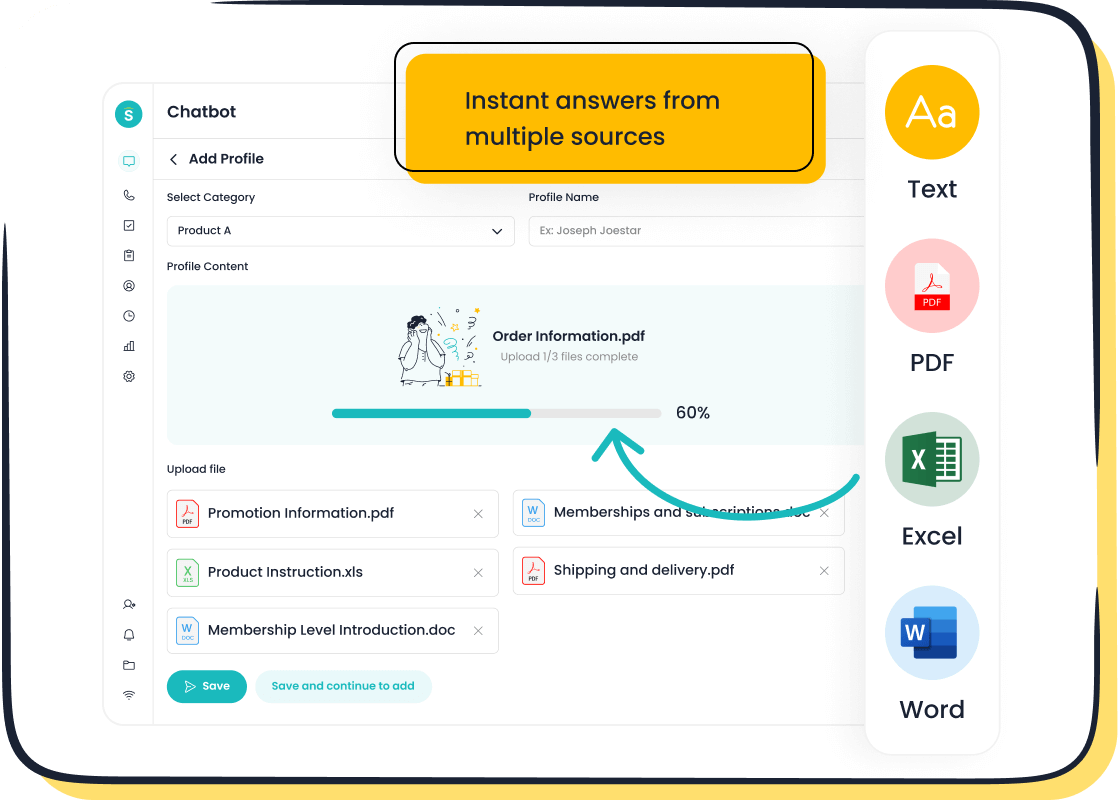
For instance, Sobot's intelligent chatbot integrates seamlessly with CRM systems, offering multilingual support and real-time insights. This allows you to personalize customer interactions and improve satisfaction.
The Difference Between Rule-Based and AI Chatbots
Rule-based chatbots follow predefined scripts and handle predictable queries. They work well for basic tasks but lack flexibility. In contrast, AI chatbots adapt to diverse scenarios using machine learning. They analyze data, understand context, and provide personalized responses.
| Feature | Rule-Based Chatbots | AI Chatbots |
|---|---|---|
| Performance | Consistent responses for predictable queries | Handles diverse queries with context |
| Adaptability | Lacks flexibility, cannot learn | Adapts through machine learning |
| Scalability | Limited scalability | Highly scalable with low additional costs |
| User Experience | Smooth for basic information | More engaging and natural conversations |
AI in business has transformed customer service by enabling enterprises to scale operations efficiently. Sobot's enterprise AI chatbot exemplifies this, offering a cost-effective solution that improves productivity by 70% and reduces service costs by up to 50%.
Key Benefits of Enterprise AI Chatbot Solutions

Enhancing Customer Support and Contact Center Efficiency
AI chatbots have revolutionized customer support by streamlining operations and improving response times. With intelligent chatbot solutions like Sobot's, you can handle high volumes of inquiries without compromising quality. These chatbots provide instant, accurate responses, ensuring customers receive the help they need when they need it.
For example, the adoption of enterprise AI chatbot solutions has led to remarkable improvements in customer service metrics. Between 2019 and 2021, the number of interactions handled by AI chatbots surged from 17 million to 400 million—a staggering 2,350% increase. The problem-solving index also rose from 77% to 92%, showcasing the effectiveness of AI-powered chatbots in resolving customer issues.
| Metric | Value in 2019 | Value in 2021 | Percentage Increase |
|---|---|---|---|
| Interactions | 17 million | 400 million | 2,350% |
| Customers using virtual assistant | 1 million | 15.9 million | 1,590% |
| Problem-solving index | 77% | 92% | 19% |
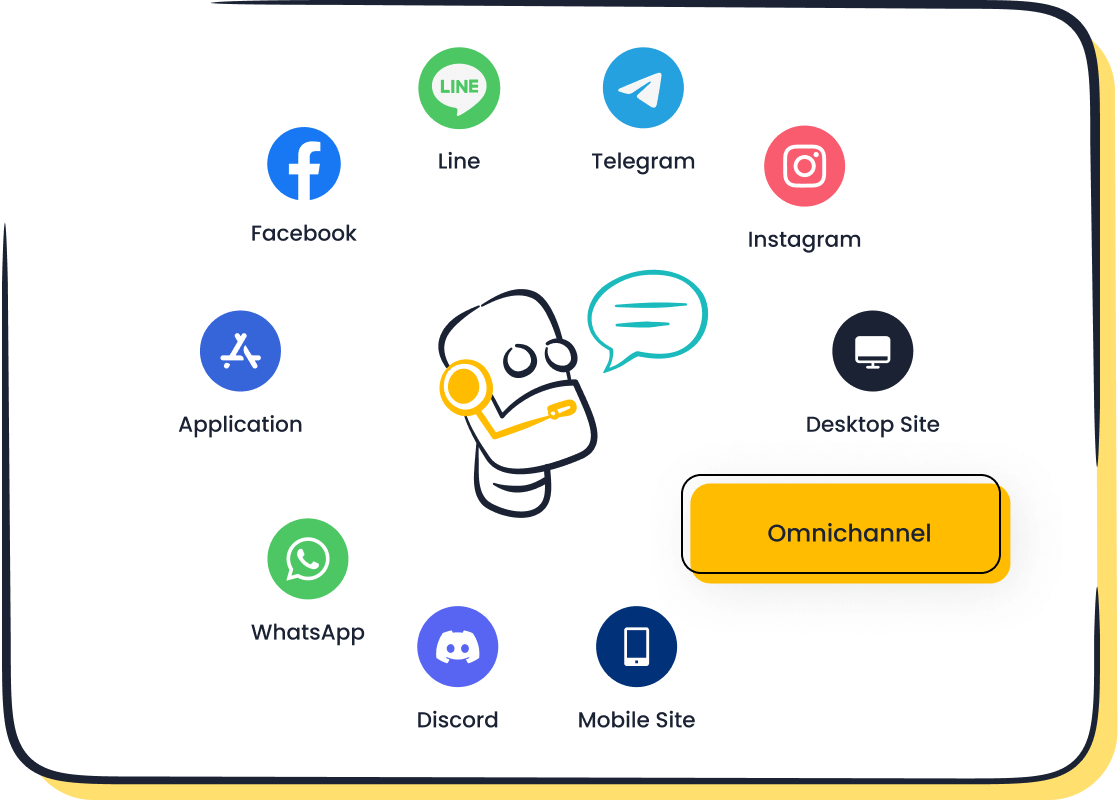
Sobot's intelligent chatbot integrates seamlessly with your contact center, offering multilingual support and omnichannel capabilities. This ensures consistent service across platforms like WhatsApp, email, and social media. By automating customer service, you can enhance productivity and focus on complex tasks that require human expertise.
Automating Repetitive Tasks to Improve Efficiency
Repetitive tasks often consume valuable time and resources. AI chatbots excel at automating routine tasks, allowing your team to focus on strategic initiatives. For instance, Sobot's chatbot can autonomously handle FAQs, appointment scheduling, and order tracking, reducing the workload on human agents.
Statistics highlight the efficiency gains achieved through automation. Companies using AI chatbots report up to 80% of routine tasks managed automatically. This automation leads to a 45% reduction in time spent on calls and a 44% faster resolution of issues. Additionally, support agents can handle 13.8% more inquiries per hour, significantly improving workforce efficiency.
| Statistic Description | Value | Source |
|---|---|---|
| Efficiency in handling customer inquiries | Up to 80% of routine tasks | Zendesk |
| Time saved on calls | 45% | Intercom |
| Faster issue resolution | 44% faster | Intercom |
| Support agents handle more inquiries | 13.8% more per hour | Nielsen Norman Group |
Sobot's AI-powered chatbots also feature a no-coding-required interface, making it easy for businesses to design and deploy workflow automations. By automating routine tasks, you can improve efficiency and allocate resources more effectively.
Reducing Costs While Boosting ROI
AI chatbots offer a cost-effective solution for businesses aiming to reduce expenses while maximizing returns. By automating customer interactions, you can lower operational costs and achieve significant savings. For example, Klarna's AI virtual assistant handled 2.3 million conversations in its first month, equivalent to the work of 700 full-time agents. This reduced repetitive inquiries by 25% and is projected to drive $40 million in profit improvement by 2024.
The financial benefits of chatbot implementation are clear. A typical enterprise AI chatbot solution costs around £17,000 in the first year but delivers estimated savings of £30,000 in labor costs and £10,000 in telephony support expenses. This results in total benefits of £45,000 and an impressive ROI of 164.7%.
- Chatbot implementation costs: £17,000 (first year)
- Labor cost savings: £30,000
- Telephony support savings: £10,000
- Total benefits: £45,000
- ROI: 164.7%

Sobot's intelligent chatbot not only reduces costs but also enhances productivity by 70%. Its proactive messaging and real-time intent assistance boost conversions by 20%, helping you automate business growth while delivering exceptional customer experiences.
Personalizing Customer Interactions with Data Insights
AI chatbots have transformed how businesses engage with customers by enabling highly personalized user experiences. These intelligent tools analyze customer data in real-time, allowing you to tailor interactions based on individual preferences and behaviors. This level of personalization not only enhances customer satisfaction but also drives loyalty and repeat business.
For example, Sephora uses AI-powered chatbots to recommend products and provide beauty advice based on customers' purchase history and preferences. This approach creates a seamless shopping experience, leading to higher engagement and increased sales. Similarly, Sobot's intelligent chatbot leverages advanced data analytics to deliver personalized communication across multiple platforms, ensuring every interaction feels relevant and meaningful.
Key features that enable personalization include:
- Predictive Analytics: Anticipate customer needs and offer proactive solutions.
- Real-Time Insights: Respond instantly to customer behaviors and preferences.
- Omnichannel Support: Provide consistent, personalized communication across all channels.
By integrating these capabilities, you can create a unified customer experience that meets expectations at every touchpoint. Sobot's chatbot, for instance, uses a knowledge base built from various sources to provide accurate, context-aware responses. This ensures that your customers receive the right information at the right time, enhancing their overall experience.
24/7 Availability for Seamless Customer Service
In today’s fast-paced world, customers expect instant support, regardless of the time or day. AI-powered chatbots excel in meeting this demand by offering 24/7 availability. This ensures that your business remains accessible, providing assistance whenever your customers need it.
The benefits of round-the-clock support are significant:
- Reduced Wait Times: AI agents handle inquiries instantly, minimizing delays.
- Improved Customer Satisfaction: Fast and convenient service fosters loyalty.
- Enhanced Operational Efficiency: Engage customers across multiple channels without increasing costs.
For instance, businesses using AI chatbots report a noticeable improvement in customer satisfaction due to faster response times. A study revealed that 24/7 availability not only reduces hold times but also enhances operational capabilities by enabling seamless engagement across platforms like WhatsApp, email, and social media.
| Metric | Description |
|---|---|
| 24/7 availability | AI agents provide round-the-clock support, ensuring customers can access assistance anytime. |
| Improved customer satisfaction | Fast and convenient service is critical to gaining loyal customers, decreasing hold times. |
| Enhanced operational capabilities | Businesses can engage customers across multiple channels, ensuring seamless assistance. |

Sobot’s intelligent chatbot operates continuously, offering multilingual support and omnichannel capabilities. Whether your customers reach out via SMS, email, or social media, the chatbot ensures consistent and efficient service. This not only improves customer satisfaction but also allows your team to focus on complex tasks that require human expertise.
Implementing AI Chatbots in Enterprise Systems
Steps to Deploy Sobot's Enterprise AI Chatbot Solution
Deploying Sobot’s enterprise AI chatbot solution is straightforward and user-friendly. You don’t need coding expertise to get started, as the platform features a point-and-click interface. Follow these steps to ensure a smooth implementation:
- Define Objectives: Identify the specific goals you want to achieve, such as improving customer service or automating repetitive tasks. Clear objectives help you tailor the chatbot to your business needs.
- Set Up the Knowledge Base: Use Sobot’s self-developed NLP and advanced LLM to build a robust knowledge base. Upload articles, PDFs, or text snippets to provide the chatbot with accurate information for instant replies.
- Integrate Communication Channels: Connect the chatbot to your preferred platforms, such as WhatsApp, email, and social media. This ensures seamless interaction across all customer touchpoints.
- Train the Chatbot: Collaborate with Sobot’s professional technical team to train the chatbot effectively. Training enhances its ability to learn and respond accurately to new queries.
- Test and Optimize: Conduct real-world testing to evaluate the chatbot’s performance. Use feedback to refine its responses and improve accuracy.
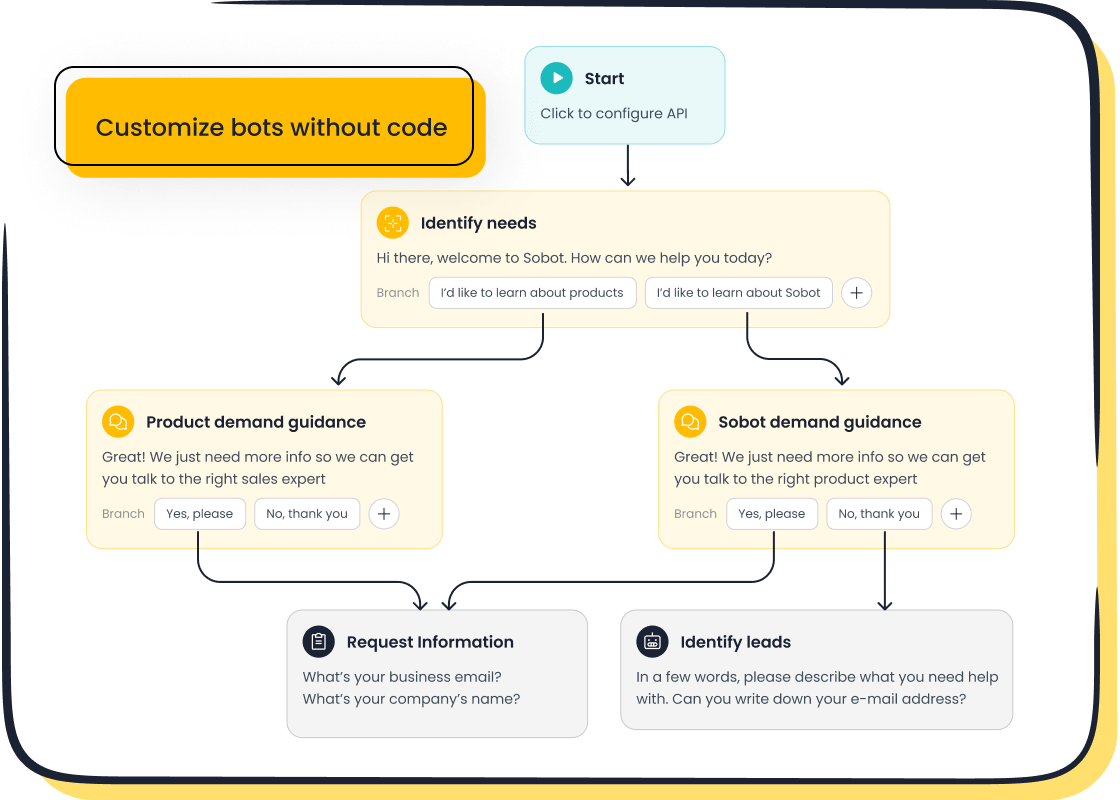
Sobot’s AI-powered automation simplifies deployment, allowing you to focus on scaling operations and enhancing customer experiences. For example, OPPO achieved an 83% chatbot resolution rate by following a similar deployment strategy during peak shopping periods.
Best Practices for Integration with CRM and ERP Systems
Seamless integration with CRM and ERP systems is essential for maximizing the efficiency of AI chatbots. By linking these systems, you enable the chatbot to access customer data and provide personalized interactions. Here are some best practices for integration:
- Prioritize Data Accessibility: Ensure the chatbot can retrieve and update information from CRM and ERP systems in real-time. This improves accuracy and reduces response times.
- Standardize Communication Protocols: Use APIs to establish consistent communication between the chatbot and enterprise systems. This minimizes integration complexities.
- Leverage Existing Success Stories: Companies like Domino’s Pizza and Delta Air Lines have reported significant improvements in customer satisfaction and operational efficiency after integrating chatbots with their systems.
- Monitor Performance Metrics: Track adoption rates, resolution times, and customer feedback to measure the success of the integration.
Sobot’s chatbot excels in seamless integration, offering omnichannel support and multilingual capabilities. By connecting it to your CRM and ERP systems, you can streamline workflows and enhance customer interactions across platforms.
Training and Optimizing Chatbots for Maximum Impact
Effective training and optimization are crucial for ensuring your chatbot performs at its best. Use these strategies to maximize its impact:
- Continuous Improvement: Collect user feedback to identify weaknesses and refine the chatbot’s responses. Regular updates to the knowledge base keep the chatbot current and relevant.
- Transfer Learning: Optimize the chatbot for specific use cases by leveraging pre-trained models. This enhances its ability to understand user intent.
- A/B Testing: Compare different chatbot responses to determine the most effective interactions. Use this data to improve engagement and satisfaction.
- Define Clear Goals: Establish measurable objectives for the chatbot’s performance, such as resolution rates or customer satisfaction scores.
- Analyze Interaction Data: Study patterns in user queries to identify areas for improvement. This helps you fine-tune the chatbot’s capabilities.
Sobot’s AI chatbots are designed for easy optimization. Their reporting features provide actionable insights, enabling you to enhance efficiency and deliver superior customer experiences. For example, OPPO reduced maintenance efforts by 90% by optimizing its chatbot’s knowledge base.
Ensuring Collaboration Between Chatbots and Human Agents
Effective collaboration between chatbots and human agents is essential for delivering exceptional customer experiences. While chatbots excel at handling repetitive tasks and providing instant responses, human agents bring creativity, empathy, and ethical judgment to the table. By combining these strengths, your business can achieve a seamless and efficient workflow.
The Role of AI in Human-AI Collaboration
AI systems, including chatbots, are designed to process large volumes of data and perform routine tasks with precision. This allows human agents to focus on complex or sensitive issues that require a personal touch. For example, Sobot's AI-powered chatbot can autonomously handle FAQs, appointment scheduling, and order tracking. Meanwhile, your agents can dedicate their time to resolving escalated cases or building stronger customer relationships.
The concept of Human-AI Collaboration emphasizes this partnership. AI handles data-driven tasks, while humans oversee decision-making processes. This approach ensures that AI-generated responses are accurate and contextually appropriate, especially for scenarios requiring ethical considerations.
Best Practices for Seamless Collaboration
To maximize the benefits of collaboration between chatbots and human agents, consider the following strategies:
- Define Clear Roles: Assign specific tasks to chatbots and human agents based on their strengths. For instance, let chatbots manage routine inquiries while agents handle escalations.
- Enable AI Copilots: Use AI copilots to assist agents with complex tasks. These tools analyze data, suggest responses, and provide summaries, empowering your team to make informed decisions.
- Implement Escalation Protocols: Ensure that chatbots can seamlessly transfer unresolved queries to human agents. This prevents customer frustration and maintains service quality.
- Provide Continuous Training: Regularly update your chatbot's knowledge base and train your agents on how to collaborate effectively with AI systems.
- Monitor and Optimize: Use performance metrics to evaluate the effectiveness of your chatbot-human collaboration. Adjust workflows as needed to improve efficiency.
Real-World Example: OPPO's Success Story
OPPO, a global leader in smart devices, demonstrates the power of human-machine cooperation. By integrating Sobot's chatbot into its customer service operations, OPPO achieved an 83% chatbot resolution rate. The chatbot handled repetitive queries, allowing human agents to focus on complex issues. This collaboration not only improved efficiency but also enhanced customer satisfaction, as evidenced by a 94% positive feedback rate.
Benefits of Collaboration
When chatbots and human agents work together, your business can achieve:
- Faster Response Times: Chatbots handle inquiries instantly, reducing wait times for customers.
- Improved Accuracy: AI copilots assist agents in providing precise and consistent responses.
- Enhanced Customer Satisfaction: Seamless transitions between chatbots and agents ensure a positive experience.
- Cost Savings: Automating routine tasks reduces operational expenses while maintaining high service standards.
Sobot's AI-powered chatbot exemplifies how technology can complement human expertise. Its multilingual support, omnichannel capabilities, and real-time insights make it an ideal partner for your customer service team. By fostering collaboration, you can deliver personalized and efficient service that meets the evolving needs of your customers.
Overcoming Challenges in AI Chatbot Adoption
Addressing Data Security and Privacy Concerns
When adopting AI chatbots, ensuring data security and privacy is critical. Customers trust you with their personal information, and mishandling it can lead to reputational damage and legal consequences. To address these concerns, you must prioritize transparency and compliance in your data practices.
- Collect only the data necessary for chatbot operations. This minimizes risks and aligns with data minimization principles.
- Obtain explicit user consent before processing personal information. Make sure users understand how their data will be used.
- Continuously monitor and audit your data handling practices. Regular updates to privacy policies ensure ongoing compliance with regulations like GDPR.
For example, deploying AI chatbots under GDPR requires securing user consent, maintaining transparent data processing, and implementing robust monitoring systems. Sobot’s AI-powered chatbot incorporates end-to-end encryption and role-based access controls to safeguard sensitive information. These measures protect user data while maintaining trust.
Ensuring Compliance with Industry Standards
AI chatbots must adhere to industry standards to ensure ethical and legal operations. Compliance frameworks like ISO/IEC standards provide structured guidelines for regulatory adherence. By following these protocols, you can enhance customer trust and avoid penalties.
Key safeguards include:
- End-to-end encryption to secure communications.
- Role-based access controls to limit data access.
- Detailed audit trails to track data usage and ensure accountability.
AI chatbots also shift compliance strategies from reactive to predictive. They help you anticipate regulatory trends and assess risks proactively. For instance, Sobot’s chatbot undergoes rigorous testing and multi-step human reviews to ensure accuracy and compliance. These practices demonstrate a commitment to ethical AI deployment.
Managing Scalability and Integration Complexities
Scaling AI chatbots and integrating them into existing systems can be challenging. However, a structured approach simplifies the process and ensures success.
- Define clear objectives to evaluate the scope of integration.
- Assess data readiness to ensure compatibility with AI systems.
- Start with a pilot project to test the chatbot on a small scale.
- Invest in scalable infrastructure to adapt to growing demands.
- Use modular architecture for easier scalability and upgrades.
For example, Sobot’s chatbot supports omnichannel communication, making it easy to integrate with platforms like WhatsApp and email. Its modular design allows businesses to scale operations without disrupting workflows. Continuous monitoring ensures optimal performance as your needs evolve.
Building Customer Trust in AI-Powered Solutions
Building trust in AI-powered solutions is essential for businesses aiming to foster long-term customer relationships. Customers often hesitate to embrace AI due to concerns about data privacy, security, and the potential misuse of technology. Addressing these concerns can help you establish credibility and ensure customer confidence.
To build trust, prioritize transparency in how your AI systems, such as chatbots, handle customer data. Explain how you collect, store, and use information. For example, Sobot’s AI-powered chatbot employs end-to-end encryption and role-based access controls to safeguard sensitive data. These measures reassure customers that their personal information remains secure.
Surveys highlight the importance of trust in AI adoption. The 2024 Thales Digital Trust Index reveals that consumers value a balance between user experience, security, and privacy. This study, which surveyed over 12,000 respondents globally, emphasizes that clear communication about AI processes strengthens trust. Similarly, the Data Trust Index shows that emotional factors, like perceived fairness and transparency, influence how customers view AI-powered tools.
However, challenges persist. A survey by Sift found that over 70% of consumers noticed an increase in spam and scams, often linked to the misuse of generative AI tools. To counteract this, you can implement robust fraud detection mechanisms and educate customers about safe interactions with AI systems.
By integrating AI responsibly, you can enhance customer experiences while maintaining trust. Sobot’s chatbots, for instance, provide multilingual support and operate 24/7, ensuring reliable and secure service. These features demonstrate a commitment to both efficiency and ethical AI use, helping you build lasting customer loyalty.
Future Trends in AI Chatbot Technology for Enterprises
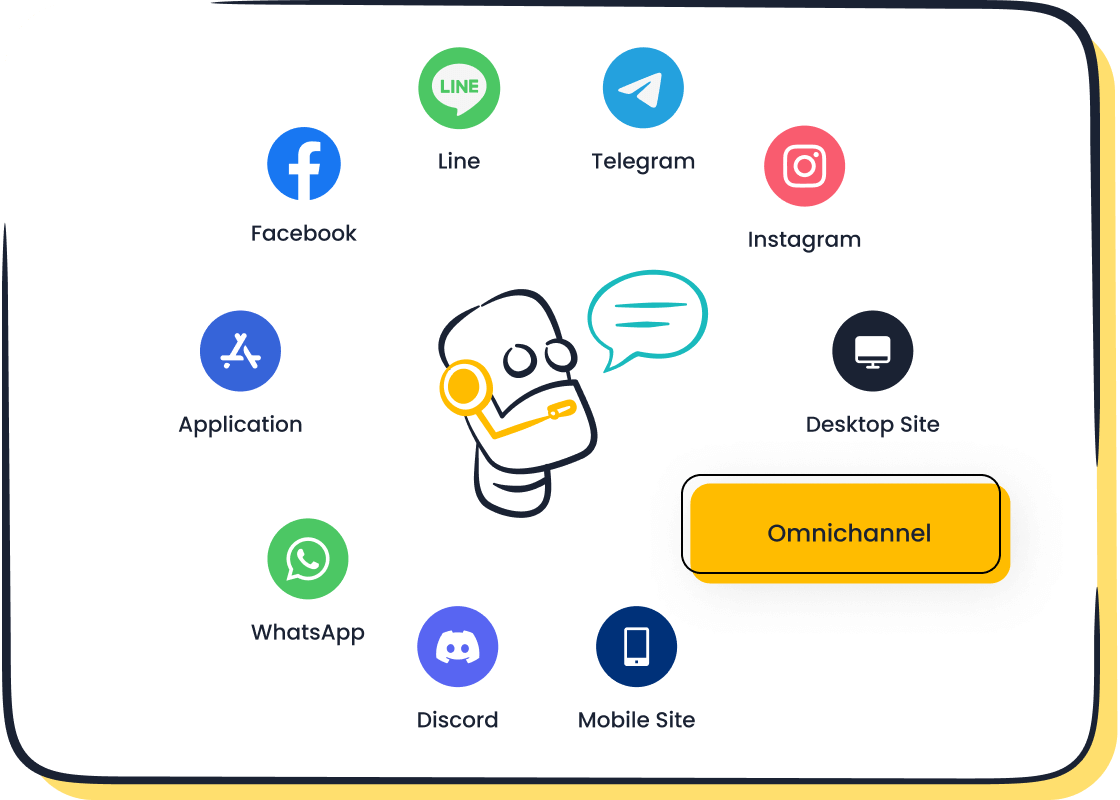
Advancements in Natural Language Processing and Generative AI
Natural Language Processing (NLP) and generative AI have significantly advanced the capabilities of chatbots. These technologies enable chatbots to understand context, mimic human language, and provide more accurate responses. For example, the introduction of the Transformer model in 2017 revolutionized how chatbots process large amounts of text data. By 2019, GPT-2 enhanced chatbot performance with more humanlike text generation. In 2020, GPT-3 introduced 175 billion parameters, allowing chatbots to perform tasks with minimal examples. Recent research by Jurafsky and Martin in 2023 highlights how incremental developments in NLP continue to refine chatbot interactions.
| Year | Model | Description |
|---|---|---|
| 2017 | Transformer | Introduced a new architecture for processing large amounts of text data efficiently. |
| 2019 | GPT-2 | A larger model that produced more humanlike text, enhancing the capabilities of chatbots. |
| 2020 | GPT-3 | Featured 175 billion parameters, allowing the model to perform new tasks with minimal examples. |
| 2023 | Jurafsky & Martin | Discussed the ability of AI chatbots to mimic natural language through incremental developments. |
Sobot’s AI-powered chatbot leverages these advancements to deliver multilingual, context-aware responses. This ensures your customers receive accurate and engaging interactions, regardless of the complexity of their queries.
AI Chatbots in Omnichannel Customer Support
AI chatbots have become essential for omnichannel customer support, enabling businesses to engage customers across multiple platforms seamlessly. By integrating chatbots into channels like WhatsApp, email, and social media, you can provide consistent and efficient service. For instance, GrandStay Hotels successfully used AI chatbots to manage repetitive tasks and improve customer satisfaction. Similarly, TGH Urgent Care implemented an AI-driven omnichannel solution to handle a surge in patient inquiries. This increased call answer rates to 80% and reduced call volume by 40%.
Sobot’s chatbot excels in omnichannel support, offering real-time assistance across various platforms. Its ability to unify customer interactions ensures a seamless experience, enhancing both satisfaction and operational efficiency.
Predictive Analytics for Proactive Customer Engagement
Predictive analytics has transformed how businesses engage with customers. By analyzing data, AI chatbots can anticipate customer needs and offer proactive solutions. This approach not only improves satisfaction but also reduces support costs. Reports highlight key benefits, such as higher engagement and the ability to predict product failures.
| Source | Key Benefits |
|---|---|
| C&R In Focus | Integration of AI chatbots enhances customer engagement and operational efficiency. |
| Predictive Analytics for Proactive Customer Support | Higher satisfaction scores and lower support costs through proactive engagement. |
| From Chatbots to Predictive Analytics | Anticipation of product failures and proactive communication with customers. |
Sobot’s chatbot uses predictive analytics to deliver proactive messaging and real-time intent assistance. This helps you address customer concerns before they arise, fostering loyalty and trust.
The Role of AI Chatbots in Enterprise Digital Transformation
AI chatbots play a pivotal role in driving enterprise digital transformation. They enable businesses to modernize operations, improve customer experiences, and stay competitive in a rapidly evolving digital landscape. By automating processes and delivering personalized interactions, chatbots help enterprises adapt to changing customer expectations and technological advancements.
Digital transformation often begins with enhancing customer service. AI-powered chatbots streamline this process by handling routine inquiries, providing instant responses, and reducing wait times. For example, KLM Royal Dutch Airlines implemented an AI chatbot named BlueBot on Facebook Messenger. This chatbot autonomously managed 60% of customer queries, improving efficiency and allowing human agents to focus on complex issues. Similarly, DHL upgraded its customer service platforms with AI-driven chatbots, enhancing operational efficiency and ensuring timely delivery services.
AI chatbots also integrate seamlessly with enterprise systems like CRM and ERP platforms. This integration allows businesses to unify customer data, enabling personalized interactions and real-time insights. Sobot’s AI chatbot exemplifies this capability. It connects with various communication channels, such as WhatsApp and email, to provide consistent support. Its multilingual and 24/7 availability ensures that your business remains accessible to customers worldwide.
Moreover, chatbots contribute to digital transformation by leveraging predictive analytics. They analyze customer behavior to anticipate needs and offer proactive solutions. This approach not only enhances customer satisfaction but also drives business growth. For instance, Sobot’s chatbot uses advanced AI to deliver real-time intent assistance, helping you engage customers effectively and boost conversions.
By adopting AI chatbots, you can transform your enterprise into a digitally advanced organization. These tools empower you to optimize operations, improve customer experiences, and achieve long-term success in the digital age.
AI chatbots are reshaping enterprise business processes by streamlining operations, enhancing customer satisfaction, and driving innovation. For example, 73% of consumers believe AI improves customer service, while companies with superior customer experiences achieve revenue growth rates 4% to 8% above the market average. By adopting AI-powered chatbots like Sobot’s, you can reduce response times by up to 50% and save billions of hours annually in customer support work.
The AI customer service market, valued at $308 million in 2022, is projected to exceed $3 billion by 2032. This growth underscores the importance of embracing AI solutions to stay competitive. Sobot’s multilingual, 24/7 chatbot empowers businesses to deliver exceptional service while cutting costs. Now is the time to explore AI chatbots and future-proof your enterprise in the digital age.
FAQ
What industries benefit the most from AI chatbots?
AI chatbots provide value across industries like retail, finance, and education. For example, retail businesses use them to handle customer inquiries 24/7, while financial services rely on them for secure account assistance. Sobot’s chatbot supports diverse sectors, offering multilingual and omnichannel capabilities tailored to specific needs.
How do AI chatbots improve customer satisfaction?
AI chatbots enhance satisfaction by providing instant, accurate responses. They reduce wait times and personalize interactions using data insights. For instance, Sobot’s chatbot ensures seamless communication across platforms like WhatsApp and email, helping businesses maintain consistent service quality.
Can AI chatbots handle complex queries?
Yes, AI chatbots can manage complex queries by leveraging advanced natural language processing. They analyze context and intent to deliver accurate solutions. Sobot’s chatbot integrates with CRM systems, enabling it to access customer data and provide context-aware responses.
Are AI chatbots cost-effective for small businesses?
AI chatbots are highly cost-effective. They automate repetitive tasks, reducing the need for additional staff. Sobot’s chatbot, for example, saves up to 50% on operational costs while boosting productivity by 70%, making it ideal for businesses of all sizes.
How secure are AI chatbots for handling sensitive data?
AI chatbots prioritize security with features like encryption and role-based access controls. Sobot’s chatbot complies with GDPR and other regulations, ensuring data privacy. These measures protect sensitive information while maintaining customer trust.
See Also
Enhancing Customer Satisfaction Through Chatbot Technology
Evaluating AI Solutions for Enterprise Call Centers
Best 10 AI Tools for Contact Center Efficiency